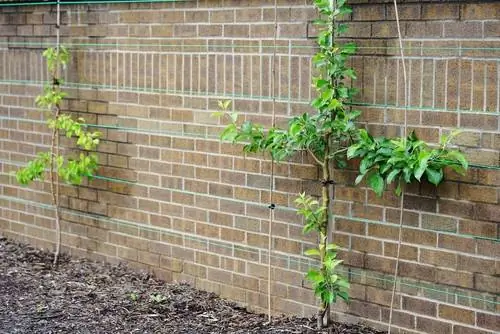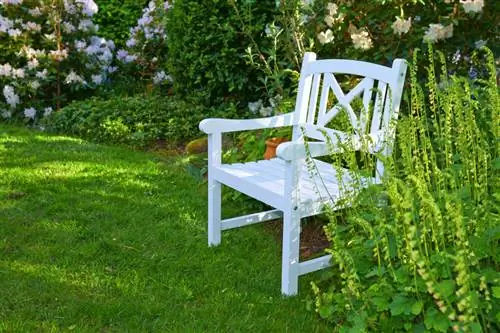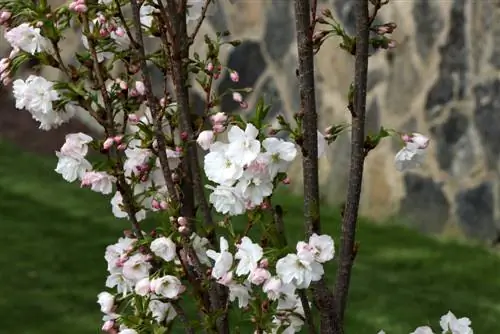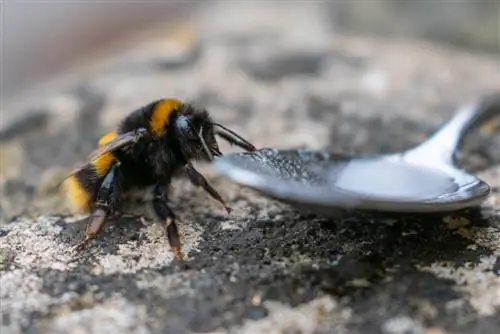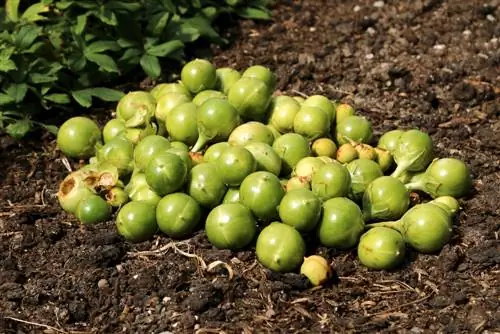- Author admin leonars@hobbygardeners.com.
- Public 2023-12-16 16:46.
- Last modified 2025-01-23 11:21.
Every tree expands in all directions. Always towards the light. This natural shape is completely unsuitable for the trellis. That's why espaliered fruit must be properly trained with scissors right from the start.
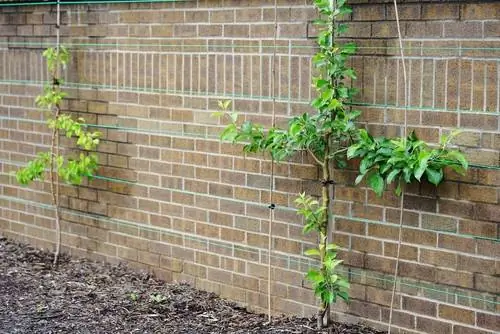
How do you train espalier fruit?
To train espaliered fruit, perform training pruning in the spring to determine the main shape of the tree. Tie selected branches to the trellis structure and remove excess branches. Maintain the given shape through regular maintenance cuts and build additional floors.
The different shapes
An espaliered fruit tree may only grow to the left and right and upwards. However, rarely higher than 2 m. Selected, suitable branches are tied to the trellis structure, the rest are removed with scissors. Which branches are left on the tree and how they are allowed to grow depends on the shape chosen. Here are the most important espalier shapes:
- Double U-shape
- Forked trellis
- Simple Palmette
- Change Palmette
- Verrier Palmette
- Kesselbaum
- Informal trellis
Education and conservation section
The first cut, which usually takes place in spring, is the so-calledEducation cut. It sets the main form. Then it is important to maintain this given shape and build the other floors. The spring cuts that are used for maintenance are called maintenance cuts.
Buy pre-formed young trees
Tree nurseries offer various espaliered fruit varieties in which the main branches have already been trained into one of the basic shapes. This also makes it easier for hobby gardeners to easily maintain their shape through regular cutting. For example, the commonly encountered U-shape.

